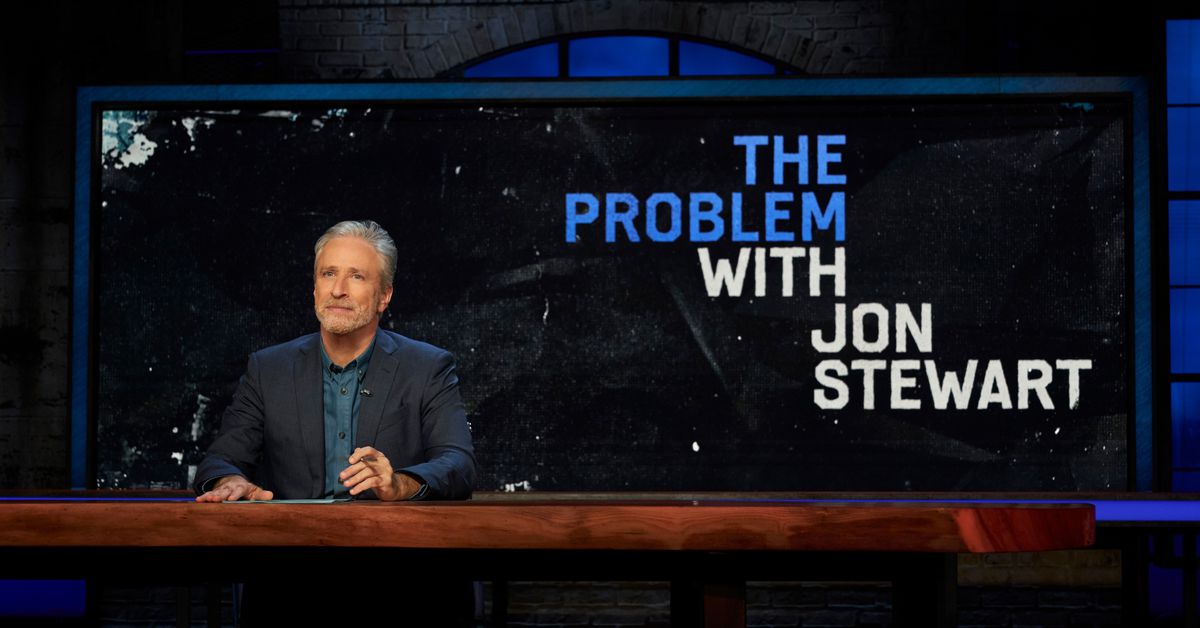A little bit of neuroscience and a little bit of computing
- 29 Posts
- 647 Comments

 3·2 days ago
3·2 days agoI think that immunity for explicitly delineated powers makes sense purely from a logical point of view: the constitution says the president can do a thing, therefore a law saying they can’t do that thing is either unconstitutional, or doesn’t apply to the president.
Yea, it’s an interesting one. AFAIU, the delineated powers are basically command of the military and the power to pardon. I really don’t see how a Crime can generally be applicable to either of those. It’s not like “commanding the army” can just become a crime.
But regulating what the army can legally do … seems like a very natural thing. I don’t know if individuals of the military in the US can be responsible under ordinary law for anything. If so, then I don’t see why that would extend to the president should they order something that’s obviously a crime. If not, then that’s that. And again, there are probably natural exceptions to carve out regarding the very nature of military action that would lead to preposterous inconsistencies if they could possible be made generally criminal … where again, it seems to me that you don’t need immunity … it’s just the nature of the power that is amenable to falling within the meaning of legislative regulation.
Beyond all of that though … there’s the opening line of Article II:
The executive Power shall be vested in a President of the United States of America
WTF is “the executive power”?! I’m sure there have been attempts in the US to give it some shape … but I’d also wager it’s been left somewhat nebulous too, involving elements quite distinct from whatever powers Congress/Law can confer. Does that count as an enumerated power?
Otherwise … yea I’m with you. The “official acts” thing seems more than wonky to me … seems downright expansive. Excluding military action and whatever “fuzzy” powers may be considered intrinsic … I’d imagine most of the executive’s powers come from legislative laws. So the body conferring power can’t constrain it to “not doing something criminal”!!!
I’ve wondered since having a brief look at the decision that the SCOTUS is playing a game here … where they do not want Trump’s trials to affect the election and are hoping to clarify this decision and what “official” means at a later date after the election.

 16·2 days ago
16·2 days agoIt’s reasonable to me to say you cannot sue the president for vetoing a bill, or criminally prosecute the president for commanding the military. The constitution says the president can do those things, and that the check on presidential power is congressional acts including impeachment.
Yea I dunno … why not just have no immunity? It’s not like the whole idea of the separation of powers is to ensure power is freely exercised … it’s the opposite.
If a president has to pause for a moment before doing something to ask their lawyer if it would be a crime … maybe that’s the point of having fucking legal system and constitution?
Sotomayer’s dissent provided pretty good evidence (AFAICT) that the framers would have put criminal immunity into the constitution if they thought it wise … because it was a known idea at the time that had been done by some states regarding their governors. They didn’t. Cuz that’s the whole point … “no man is above the law”.
And as for Congressional impeachment being paramount … I’m not sure that’s either necessary or even consistent with the Constitution (again, as Sotomayer’s dissent addresses).
For example … Article 1, section 3 (emphasis mine):
Judgment in Cases of Impeachment shall not extend further than to removal from Office, and disqualification to hold and enjoy any Office of honor, Trust or Profit under the United States: but the Party convicted shall nevertheless be liable and subject to Indictment, Trial, Judgment and Punishment, according to Law.
In short (AFAICT) … impeachment and general legal liability are not the same thing … and the latter totally still applies.
Beyond all of that, the general law probably achieves everything that the majority’s decision was worried about (while they were conspicuously not worried about all of the other things that one should be when crowning a king). Civil immunity is a well established doctrine (government’s just too big and complex a thing for civil responsibility to make sense). And while I don’t know anything about it, there are similar-ish ideas around criminal responsibilities that just don’t make sense for the very nature of a governmental responsibility, war, I think, being a classic example. Sotomayer again speaks about these things.
Overall, once you start to squint at it, the whole decision is kinda weird. To elevate the separation of powers to the point of creating literal lawlessness seems like plain “not seeing the forest for the trees”.
The bit I wonder about, without knowing US Constitutional law/theory well at all … is whether a democratic factor has any bearing. A criminal law is created by the legislature, a democratic body. And also caries requirements for judgment by jury. So couldn’t an argument be made that the centrality of democratic power in the constitution cuts through any concerns about the separation of powers that the SCOTUS had, and enables democratically ordained law to quash concerns about whatever interference the judiciary (or legislature?) might exercise with the executive.
I know there’s the whole “it’s not a democracy, it’s a republic” thing … but the constitution dedicates so much text to establishing the mechanisms of democracy (including the means by which the constitution itself can be altered) that it seems ridiculous to conclude that democratic power is anything but central.

 71·9 days ago
71·9 days agoI believe you … gate-keeping types are all over the place really.
But vegans or the “vegan-curious” aren’t one thing or one kind of person, at least not any more. I personally have only ever had positive conversations with vegan types.
This instance, in being insistent on not entertaining any “harm reduction” or “compromises”, makes sense though … because it’s a space for people to talk about that sort of dedicated approach.

 63·9 days ago
63·9 days agothey drive away potential allies because the concept of harm reduction is anathema to their binary thinking. If you’re not ALL in, you’re the enemy.
I can resonate with that. But I come back to … “it’s totally ok for people to create their own spaces, especially on federated social media and especially for minority groups/ideas”.
There are likely plenty of other spaces for “potential allies” to engage and talk about veganism if they want to, or plenty they, or you, could make on their own.
Tacitly admitting that vegans are usually antisocial zealots. “It’s right in the name!”
Well, they’re running their own social media platform, so I’m not sure how anti-social they are.

 121·9 days ago
121·9 days agoRight. Well, I think the instance name “vegantheory.org” was doing that already, and I’m betting you drew your conclusion from the public description of the place too (and aren’t in the modlog or anything for challenging their ideas).

 234·9 days ago
234·9 days agoAnd what would a non-vegan want to do in there?
What’s wrong with minority views and practices creating their own spaces?
On which, is there any non-vegan/anti-vegan thought or idea that a vegan is likely to have not heard already? How many haven’t they heard relative to the amount of decent “pro-vegan” ideas they also haven’t heard of?
Maybe a specialised space, echo chamber even, makes sense in order to balance against the gravity of the mainstream?
 2·10 days ago
2·10 days agoI’ve peaked at that issue a couple of times, but I never worked out what the issue/feature got stuck on. Naively I would have thought it a relatively workable feature to add.
Every browser released since 2020 supports this
It’s a little paranoid of me, but I like the idea that a basic web app I make can be thrown onto any old out of date machine, where ~2015 or younger seems about right for me ATM.
You mean the Html template Element? I’ve never really got that to work, but I also never seriously tried.
Yea. From memory, it’s just an unrendered chunk of HTML that you can select and clone with a bit of JS. I always figured there’d be a pattern that isn’t too much of a cludge and gets you some useful amount of the way to components for basic “vanilla-js” pages, just never gave it a shot either.
Yea, I’m unclear on how you can take web components and still have widespread browser support (not knowing enough about their ins and outs).
Plain template elements are widely supported and have been for ~10 years (which ideologically matters to me along the same lines as the top post’s article) … perhaps a little bit of hacking together can get you close with just that?

 15·14 days ago
15·14 days agoBut nah. These goobers got high off npm modules and did shots of JSX in the bathroom at lunch time.
Fucking LoL!
Anyone here have thoughts about doing basic interactive stuff with at most vanilla JS?

 289·21 days ago
289·21 days agoIt’s our generation’s cigarettes.
“I don’t know, everyone was just doing it” is what we’ll say and what prior generations have said about smoking everywhere all of the time.
The stimulation from and addiction to nicotine or social dopamine … it’s the same shit. The weird marketing, branding and business capture big tech has now could look just like the marketing and wealth of cigarettes in the past.

 7·1 month ago
7·1 month agoYou need to see it to believe it I think. I was generally on the side of “too complex” but then came across instances perfect for it and used it right away and found it pleasant.
I’m still generally on the side of “too complex” though, and think there are probably better things for PSF to work on (cough packaging cough).

 4·1 month ago
4·1 month agoWanting to talk to some people about a relatively niche topic, where I felt confused but had no one to work through my confusion with … learnt about Usenet, and quickly found myself talking to people from around the world about the topic.
For me personally, apart from the interactive data visualisation moment around D3 ~2015, and of course watching funny videos back before YouTube, the internet hasn’t really gone beyond that experience.

 65·1 month ago
65·1 month agoKinda funny, not too long ago it was a fun mental exercise if you were paying attention to the tech industry to try to think of the ways in which Google or MS could fall.
Now, AFAICT, neither are falling any time soon, but there certainly seems to be a shift in how they’re perceived and how their brand sits in the market (where even so I’m still probably in a bubble on this).
But I’m not sure how predictable it would have been that both would look silly stumbling for AI dominance.
And, yea, I’m chalking recall up to the AI race as it seems like a grab for training data to me, and IIRC there were some clues around that this could be true.

 2·1 month ago
2·1 month agoYea, sometimes you don’t have many options and that’s just kinda life. But if you don’t have to commit to a situation, project, job etc … I think it will always help to at least try to come up with an exit plan, because even if there isn’t a good one, it helps you frame everything in terms of trade offs and understand that most things, at some point, just aren’t worth it because there are always other options (at least that’s how I see things now, as someone who hasn’t valued being flexible and agile in life nearly enough).

 9·1 month ago
9·1 month agoAlways have an exit plan.
Not sure it’s really a quote, so maybe it doesn’t count … but it’s such common wisdom that it probably should count.
I never really appreciated it until I went through something where the wisdom of it would have made the difference. The slightly more precise version, IMO, is that whenever you’re in a position where something beyond your control can have a substantial influence on the outcome, you need an exit plan before you commit to that position, where that plan includes the definition of the conditions which trigger both the preparation of the execution of the plan and the time to actually exit.
The whole idea is to be prepared to not get fucked by other people or bad luck. And half of the benefit of having the plan is in the perspective it gives you. Instead of having Stockholm syndrome or suffering from the sunk cost fallacy, you naturally assess your situation as the set of trade offs that it is and more naturally perceive the toxic people that are essentially stuck in their worlds and either hold others back or propagate the culture that holds others back.
Make sure you have the plan, including the trigger conditions, formulated ahead of time, and regularly think back on the plan as you’re going along, adjusting or reassessing as necessary.

 411·1 month ago
411·1 month agothe notion that Europe “may be bad at migration” and being “shit” to others whilst protecting their culture comes of as uninformed at best and holier than thou preachy at worst.
So Europeans and/or Germans can’t be bad at something?
But they should be competent enough to function in order to integrate into the society.
For refugees, this seems like a hard ask.
… Those people rely on friends and family when it comes to simple tasks as doctor appointments.
Maybe then it’s fine? This sort of thing is perfectly common for first generation migrants. And in the age of decent AI translation, I’m really not sure stringency on this makes too much sense anymore.

 105·1 month ago
105·1 month agoIf people want to migrate to a specific country long term, the spoken language has to be learned to become a member of society and prevent the forming of parallel societies.
Two points:
- There’s learning a language to a basic level to be functional in every day activity and then there’s learning it well/fluently. Reality is that first generation migrants rarely learn the native language well and it isn’t until the second/third generations that the native language becomes a first language amongst the migrants’ families.
- Given the above, your hard statement about “parallel societies” being inevitable without sufficient language education is false over a long enough time period (~25yrs), as children of migrants will inevitably learn their country’s language and culture … because that’s how children and language and culture work.
All up, presuming that you’re German, it feels like you and your culture might not know how immigration works. Which I say not just to be argumentative but because the one thing that is likely to prevent the above is an entrenched anti-immigration culture that forces the migrants to feel alienated and form more insular cultures rather than integrate with an accepting culture.
Reality is that migration seems to have worked plenty well in many other places. Europe may just be bad at this. And while there may be something to the issue of “protecting the culture” … I’m just not convinced the finer details of any culture are worth protecting at the expense of being shit to others and conservative about how things have to be.













I don’t think this is correct.
The bit you’re getting confused by, I think, is that some generations are just bigger than others. The boomers were by their name sake a big generation. Millennials are essentially boomers’ kids … and so they’re bigger than both Gen X and Gen Z.